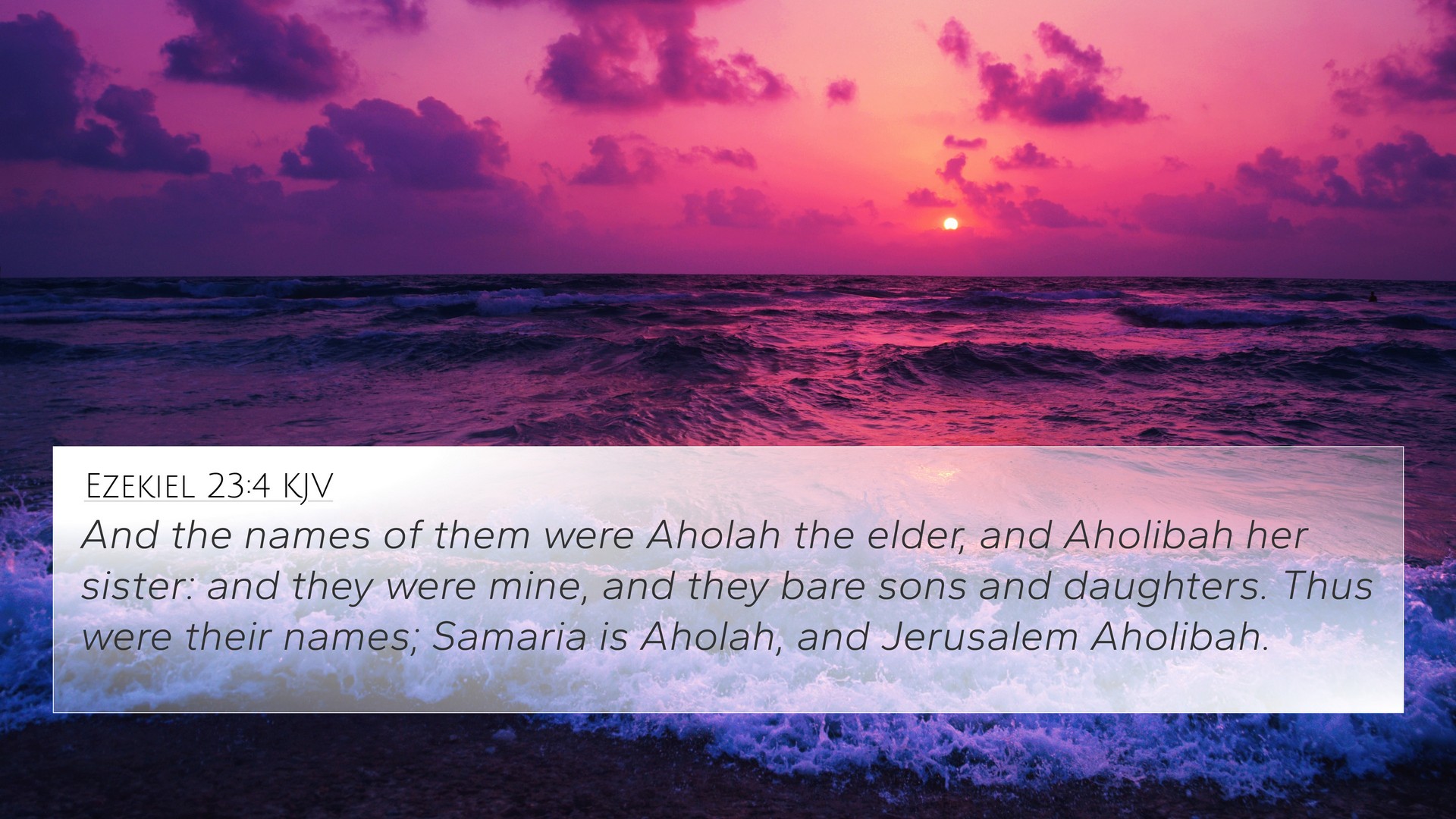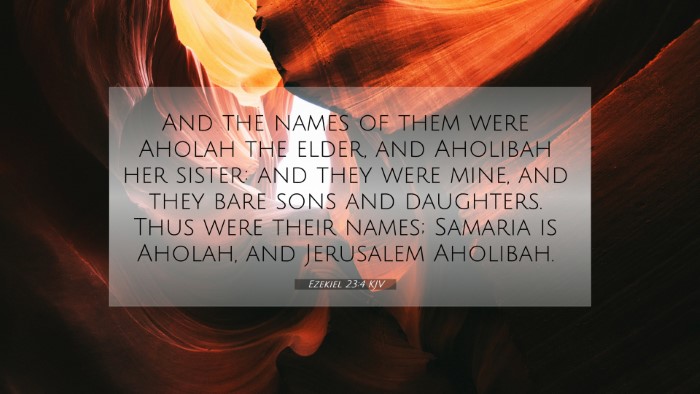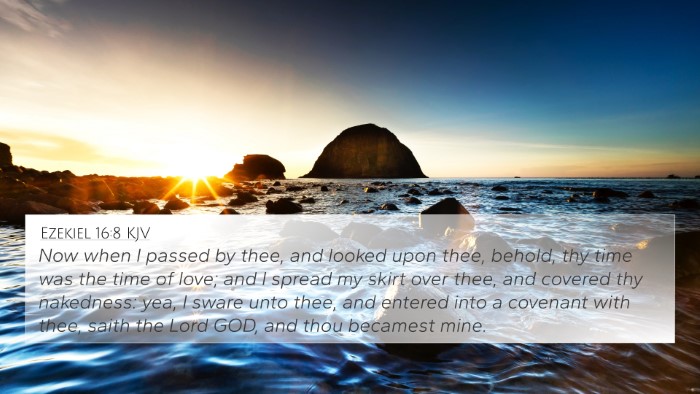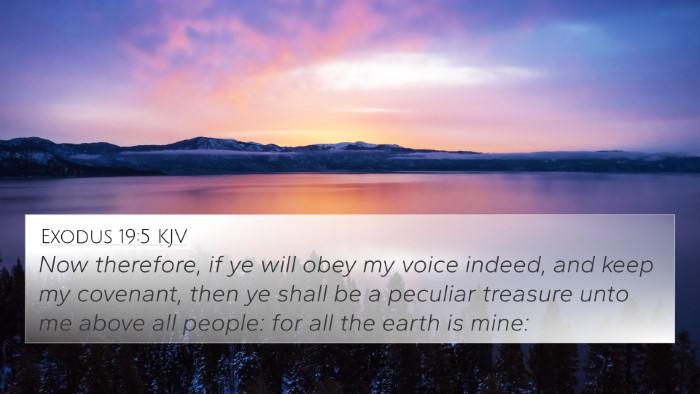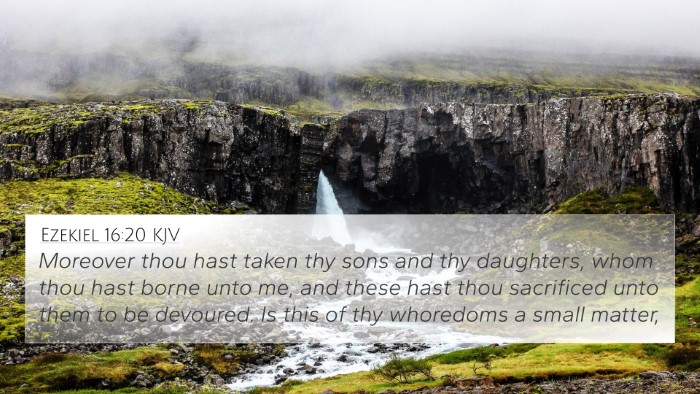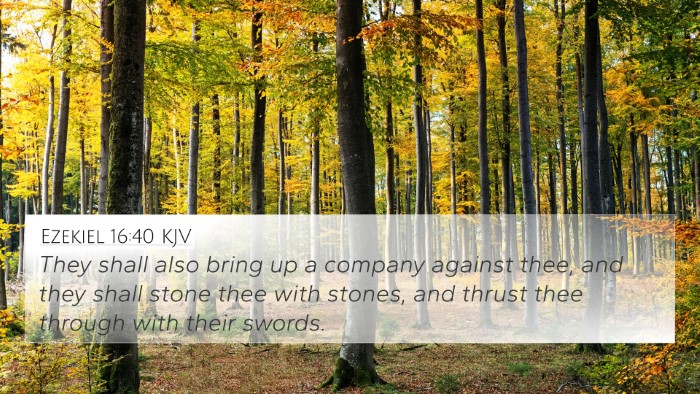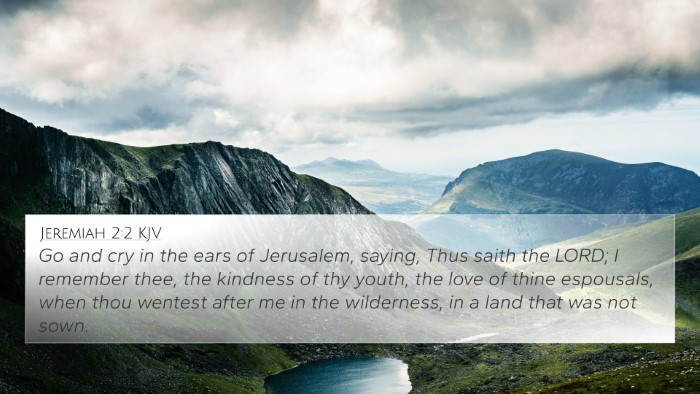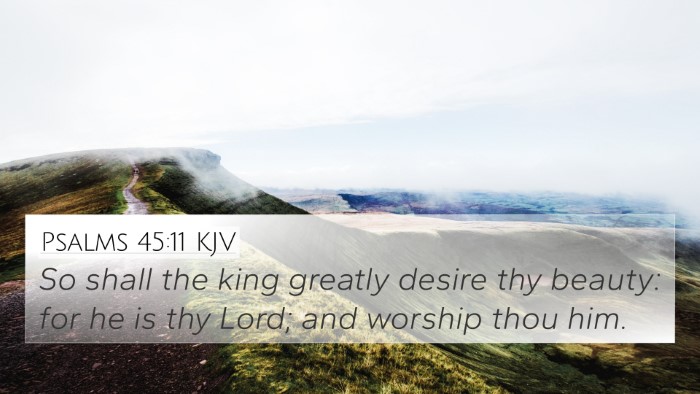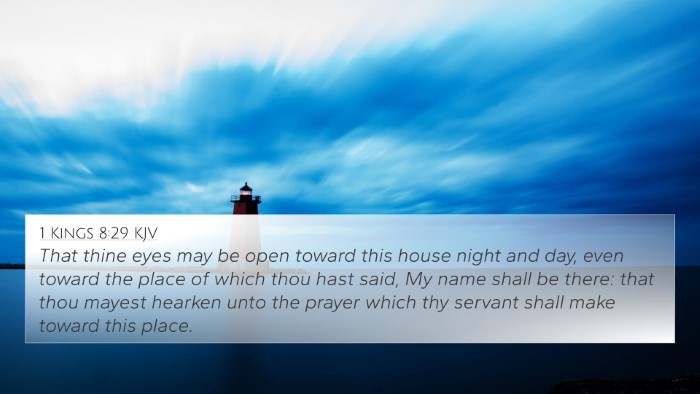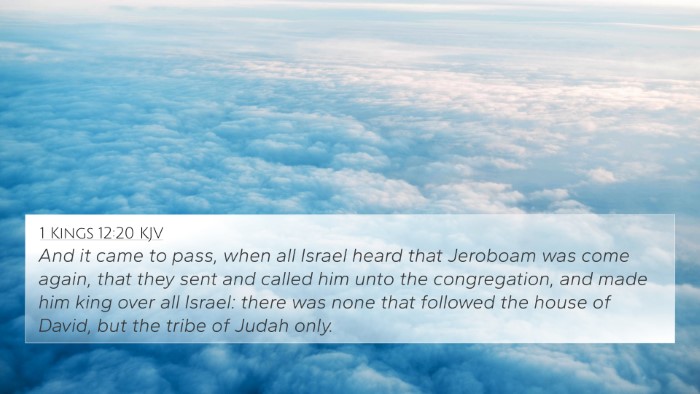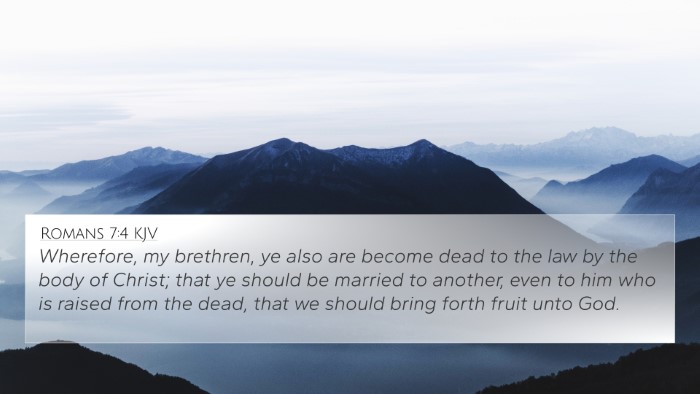Ezekiel 23:4 - Meaning and Interpretation
Bible Verse: Ezekiel 23:4
"And the names of them were Aholah the elder, and Aholibah her sister: and they were mine, and they bare sons and daughters. Thus were their names; Samaria is Aholah, and Jerusalem Aholibah."
Overview and Context
The Book of Ezekiel, a prophetic text, addresses the people of Israel during Babylonian exile. Chapter 23, in particular, employs the metaphor of two sisters to symbolize the two kingdoms of Israel. Ezekiel employs strong imagery to convey the themes of unfaithfulness and judgment.
Interpretive Insights from Commentaries
-
Matthew Henry:
Henry emphasizes the metaphorical significance of the two sisters, Aholah (representing Samaria) and Aholibah (representing Jerusalem), illustrating the spiritual infidelity of Israel. The names highlight the covenant relationship with God and the betrayal through idolatry.
-
Albert Barnes:
Barnes notes the historical context, explaining how both Samaria and Jerusalem deviated from their divine calling. The depiction as sisters symbolizes the close ties between the two kingdoms and their shared fate in judgment due to disobedience.
-
Adam Clarke:
Clarke provides insight into the etymology of the names Aholah and Aholibah, linking them to the themes of God’s presence (Aholah) and God’s love (Aholibah). He underscores the gravity of their actions and the consequences of turning away from God.
Key Themes
The verse encapsulates several key themes:
- Spiritual Infidelity: Aholah and Aholibah exemplify how the kingdoms of Israel forsook their loyalty to God.
- Judgment: The naming of these sisters indicates the impending judgment they will face due to their unfaithfulness.
- Identity and Roots: The names signify each kingdom's heritage and their roles in God's plan.
Bible Cross-References
This verse connects with various other scriptures that share similar themes or historical contexts:
- Hosea 1:2: Discusses Israel's unfaithfulness.
- Jeremiah 3:6-10: Explores Israel's idolatry and the analogy of unfaithfulness.
- Isaiah 1:21: Portrays Jerusalem as a once faithful city that has become corrupt.
- Ezekiel 16:44-47: The analogy of Jerusalem as an adulterous wife.
- Ezekiel 22:2-4: God's condemnation of Jerusalem's bloodshed and idolatry.
- Revelation 17:1-6: The imagery of the harlot, reflecting unfaithfulness in a new covenant context.
- Matthew 23:37: Jesus lamenting over Jerusalem's rejection of Him.
Conclusion
The verse Ezekiel 23:4 serves as a powerful reminder of the consequences of turning away from God's covenant. The portrayal of Aholah and Aholibah not only illustrates the historical integrity of Israel but also speaks to the enduring themes of faithfulness, judgment, and redemption that echo throughout the scriptures. By understanding this verse within its biblical context, one can appreciate the intricate connections between different biblical texts and themes.
Tools for Cross-Referencing
For deeper studies, consider using the following tools:
- Utilize a Bible concordance for keyword searches.
- Access a Bible cross-reference guide for comprehensive thematic studies.
- Explore Bible reference resources that highlight inter-biblical dialogue.
- Employ cross-reference Bible study methods to draw connections between passages.
Further Study Suggestions
As you engage with Ezekiel 23:4, consider:
- Identifying connections between Old and New Testament: Analyze the parallels between the prophets and epistles.
- How to find cross-references in the Bible: Learn techniques for thematic exploration.
- Comparative study of Pauline epistles: Investigate how these themes develop in the New Testament.
